2046 (2004): love is a matter of time | el amor es cuestión de tiempo
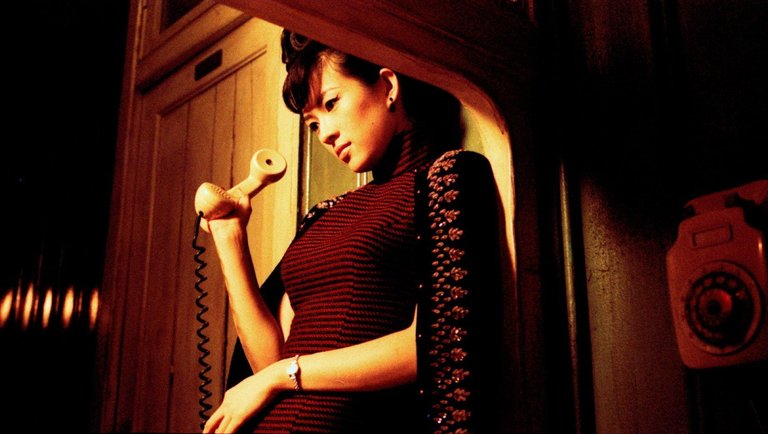
El final de la trilogía de Wong Kar-Wai
As I mentioned a few days ago, Wong Kar-Wai is one of the most interesting directors I have had the opportunity to see. His films have their own stamp and are usually intersecting stories of men and women in search of love and themselves. Three of his most celebrated films make up the so-called Trilogy of Love, which begins with Days of Being Wild (1990), continues with the already iconic In the Mood for Love (2000) and culminates with this one, perhaps less known but equally great 2046, an unusual title for a film about love.
Tal como lo comenté hace algunos días, Wong Kar-Wai es uno de los directores más interesantes que he tenido la oportunidad de ver. Sus películas tienen un sello propio y suelen ser historias cruzadas de hombres y mujeres en busca del amor y de sí mismos. Tres de sus películas más celebradas conforman la llamada Trilogía del amor, la cual se inicia con Days of Being Wild (1990), continúa con la ya icónica In the Mood for Love (2000) y culmina con esta, quizás menos conocida pero igualmente genial 2046, un título poco común para tratarse de una película sobre el amor.
Of course that title has an explanation. At the beginning, the film shocks Wong Kar-Wai connoisseurs a little because 2046 begins as a science fiction story. The number then is a date, a year to which people go - traveling by train - to recover the memories they have lost. However, those who paid attention to In the Mood for Love will remember that when the protagonist, Chow, asks Su Li-zhen for help to write some stories, they decide not to meet at their homes to avoid gossip from the landlady and Chow rents a hotel room each evening, the room number? The 2046. So, although this prologue has a futuristic and fantastic tone, we know that this number is not a coincidence. Little by little the film brings together two narratives that develop in parallel: one of them on board the train in 2046 and the other in Hong Kong, at the end of the sixties, just after the end of the second film of the trilogy. So we have Tony Leung Chiu-Wai as Chow again, but this time his character has changed a bit after his frustrated love story with Su Li-zhen. The man who was previously married, sensitive and respectful, is now a womanizer who sleeps with different women every night and doesn't compromise his feelings with them. For him, now, a woman is a desire, something temporary, not someone to love. The only one who he wanted to love and who perhaps could have loved - doubt and remorse consume him - was Su Li-zhen. And she's already gone.
Claro que ese título tiene una explicación. Al iniciar, la película saca un poco de onda a los conocedores de Wong Kar-Wai porque 2046 inicia como una historia de ciencia ficción. El número entonces es una fecha, un año al cual la gente acude - viajando en tren - para recobrar los recuerdos que ha perdido. Sin embargo, quienes prestaron atención a In the Mood for Love, recordarán que cuando el protagonista, Chow, le pide ayuda a Su Li-zhen para escribir unos relatos, deciden no encontrarse en sus viviendas para evitar habladurías de la casera y Chow alquila cada tarde una habitación de hotel, ¿el número de la habitación? La 2046. Entonces, aunque este prólogo tenga un tinte futurista y fantástico, sabemos que ese número no es una casualidad. Poco a poco la película va acercando dos narraciones que se van desarrollando en paralelo: una de ellas a bordo del tren en ese 2046 y la otra en Hong Kong, a final de los años sesenta, justo después del final de la segunda película de la trilogía. Así que volvemos a tener a Tony Leung Chiu-Wai como Chow, pero esta vez su personaje ha cambiado un poco tras su historia de amor frustrada con Su Li-zhen. El hombre que antes estaba casado, era sensible y respetuoso, ahora es un Don Juan que se acuesta con diferentes mujeres cada noche y que no compromete con ellas sus sentimientos. Para él, ahora, una mujer es un deseo, algo pasajero, no alguien a quien amar. La única que quiso amar y que tal vez pudo amar - la duda y el remordimiento lo consumen - fue Su Li-zhen. Y ella ya se ha ido.
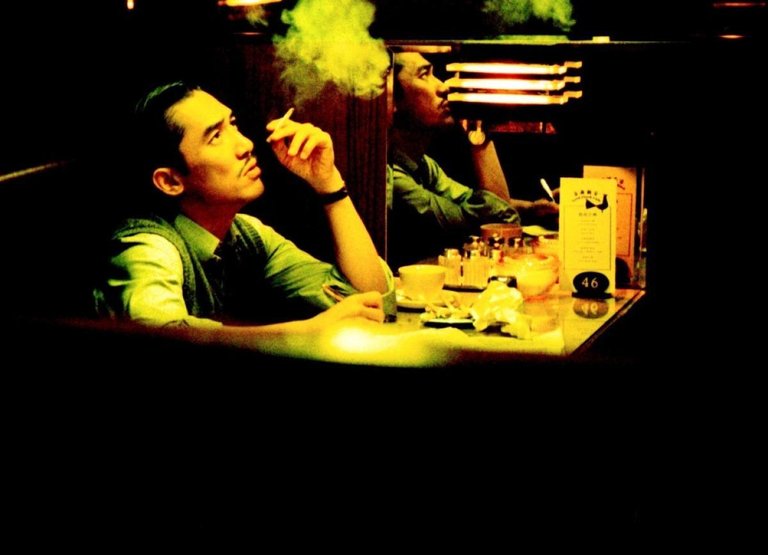
However, there is still some romanticism in Chow; That is why he decides to rent room 2046 in a hotel, but since it's undergoing repairs, they offer him the one next door, 2047. Chow accepts and months pass until 2046 is ready and then a beautiful and seductive woman moves to that one. Chow decides to remain as a neighbor of the room he wanted in the first place and a game of seduction begins between our protagonist and the new object of his desire.
Sin embargo, aún queda algo de romanticismo en Chow; es por eso que decide alquilar la habitación 2046 en un hotel, pero al estar en reparaciones, le ofrecen la que esta al lado, la 2047. Chow acepta y pasan los meses hasta que la 2046 está lista y entonces una hermosa y seductora mujer se muda a esa. Chow decide permanecer como vecino de la habitación que quería en primera instancia y comienza un juego de seducción entre nuestro protagonista y el nuevo objeto de sus deseo.
The woman, called Bai Ling, is played by a young, beautiful and talented Zhang Ziyi (Memoirs of a Geisha, Crouching Tiger Hidden Dragon), who resembles Chow, as she also sleeps with many men, only unlike Chow she does it for money. A flirtation begins between the two in which Chow first chases Bai Ling, but after a while, several dates, random events, lovers involved, the ghosts of the past and an accumulation of feelings involved, she will be the one to seek him out. Now, although this is the central story of the film, we see other people who relate to them, the years go by, life happens, these lovers see each other less and less frequently and we discover other stories, of which the most interesting it's precisely what happens in 2046, which is nothing more than a story that Chow writes. That's why we discover relationships, parallelisms and symbologies that connect this futuristic science fiction story with what Chow has experienced with Su Li-zhen, Bai Ling and some other women. From that perspective, 2046 is an interesting example of the creative process of a writer who disguises his reality by turning it into fiction, but who imprints on it the intensity of the reality he has lived. I liked the way these two stories were told until the connection between them is appreciated and I think there is a good balance of joys, sadness, laughter, bitter moments and other emotions.
La mujer, llamada Bai Ling, es interpretada por una joven, hermosa y talentosa Zhang Ziyi (Memoirs of a Geisha, Crouching Tiger Hidden Dragon), quien se parece a Chow, pues ella también se acuesta con muchos hombres, sólo que a diferencia de él, ella lo hace por dinero. Comienza un coqueteo entre ambos en el que primero Chow persigue a Bai Ling, pero que después de un tiempo, varias citas, eventos azarosos, amantes de por medio, los fantasmas del pasado y un cúmulo de sentimientos involucrados, será ella quien lo busque a él. Ahora, si bien esta es la historia central de la película, vemos otras personas que se relacionan con ellos, los años pasan, la vida sucede, estos amantes se ven cada vez con menor frecuencia y descubrimos otras historias, de las cuales la más interesante es precisamente la que sucede en el 2046, la cual no es más que un relato que escribe Chow. Por eso descubrimos relaciones, paralelismos y simbologías que conectan esa historia de ciencia ficción futurista con lo que ha vivido Chow con Su Li-zhen, Bai Ling y algunas otras mujeres. Desde esa perspectiva, 2046 es un interesante ejemplo del proceso creativo de un escritor que disfraza su realidad al convertirla en una ficción, pero que imprime en ella la intensidad de la realidad que ha vivido. Me gustó la forma en que se fueron narrando estas dos historias hasta que se aprecia la conexión entre ellas y creo que hay un buen balance de alegrías, tristezas, risas, momentos amargos y otras emociones.

The direction is impeccable, the performances are excellent and the script is very good, as well as a little more risky (with that game of fiction within fiction), so 2046 is also an excellent film, at the height of the best of its director. For those who don't know Wong Kar-Wai, you can start by watching the last 2/3 parts of this Love Trilogy and then, if you want, watch Days of Being Wild as a kind of prequel, but I think to appreciate the story of Chow can do without that first film. I loved seeing again actresses who participated in the director's other films, such as Maggie Cheung (Chow's La Su Li-zhen) and Faye Wong (the central figure of Chungking Express) and seeing how in the middle of the dialogues in Mandarin, Cantonese and Japanese, also in this one a soundtrack of songs sung in Spanish is mixed. Wong Kar-Wai's films are a multicultural experience.
Finally, one of the phrases that I liked the most is also one of the most remembered phrases from this film and I think it's responsible for many coming to see it. Somewhere, Chow's narrator voice reflects on love and says: "Love is all a matter of timing. It's no good meeting the right person too soon or too late", so I ask you, do any of you have a love story that could not have happened because of the moment in which it arose? What do you think of Chow's phrase? I read you in the comments.
La dirección es impecable, las actuaciones son excelentes y el guión es muy bueno, además de un poco más arriesgado (con ese juego de la ficción dentro de la ficción), con lo que 2046 también es una excelente película, a la altura de lo mejor de su director. Para quienes no conozcan a Wong Kar-Wai, pueden empezar por ver las 2/3 últimas partes de esta Trilogía del amor y luego, si quieren, ver Days of Being Wild como una especie de precuela, pero creo que para apreciar la historia de Chow se puede prescindir de esa primera película. Me encantó volver a ver actrices que participaron en otras películas del director, como Maggie Cheung (La Su Li-zhen de Chow) y Faye Wong (la figura central de Chungking Express) y ver cómo en medio de los diálogos en mandarín, cantonés y japonés, también en esta se mezcla una banda sonora de canciones cantadas en español. Las películas de Wong Kar-Wai son una experiencia multicultural.
Finalmente, una de las frases que más me gustó también es una de las frases más recordadas de esta película y creo que es la responsable de que muchos se acerquen a verla. En alguna parte, la voz de narrador de Chow reflexiona sobre el amor y dice: "El amor es todo cuestión de tiempo. No es bueno conocer a la persona adecuada demasiado pronto o demasiado tarde", así que les pregunto ¿alguno de ustedes tiene una historia de amor que no pudo ser por el momento en que surgió? ¿qué opinan de la frase de Chow? Los leo en los comentarios.
Reviewed by | Reseñado por @cristiancaicedo
Other posts that may interest you | Otros posts que pueden interesarte:
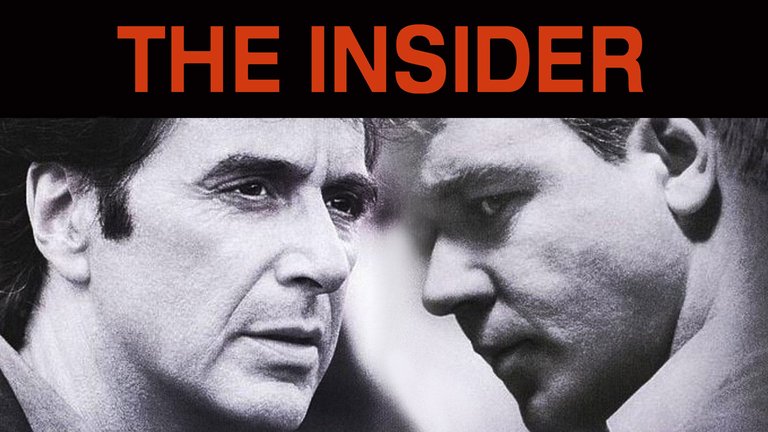  |
|---|
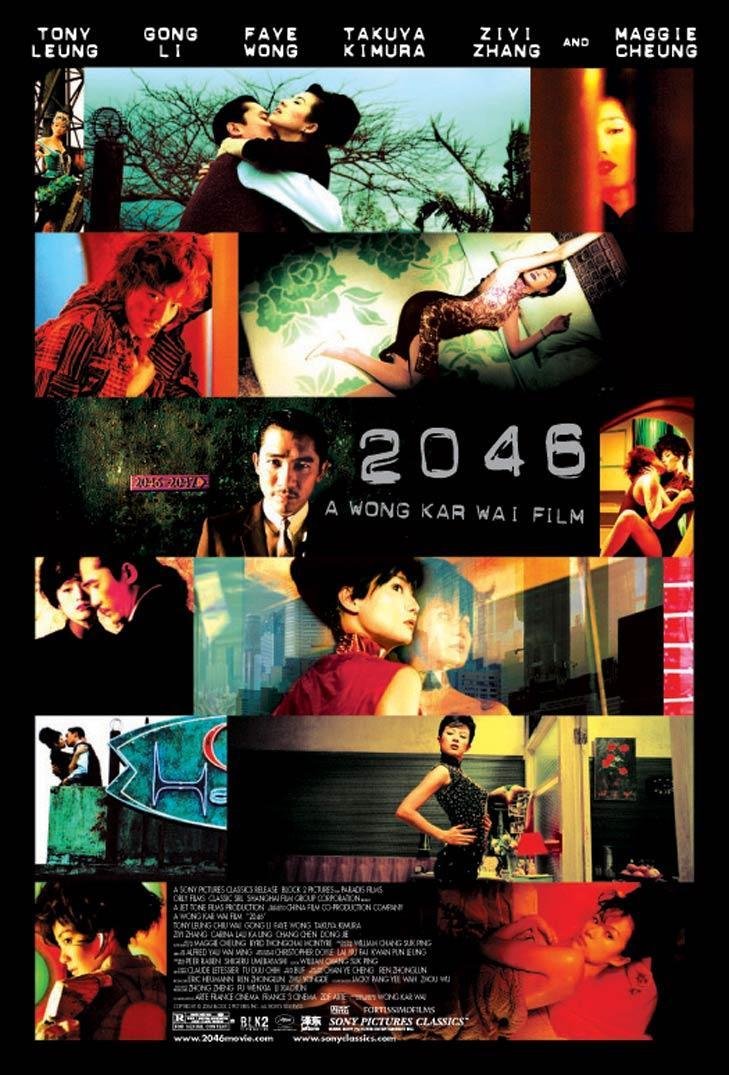
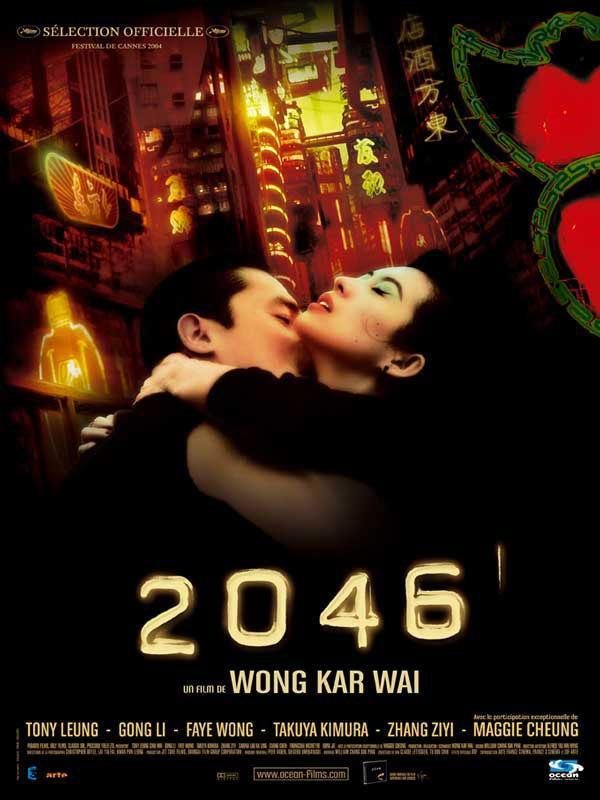
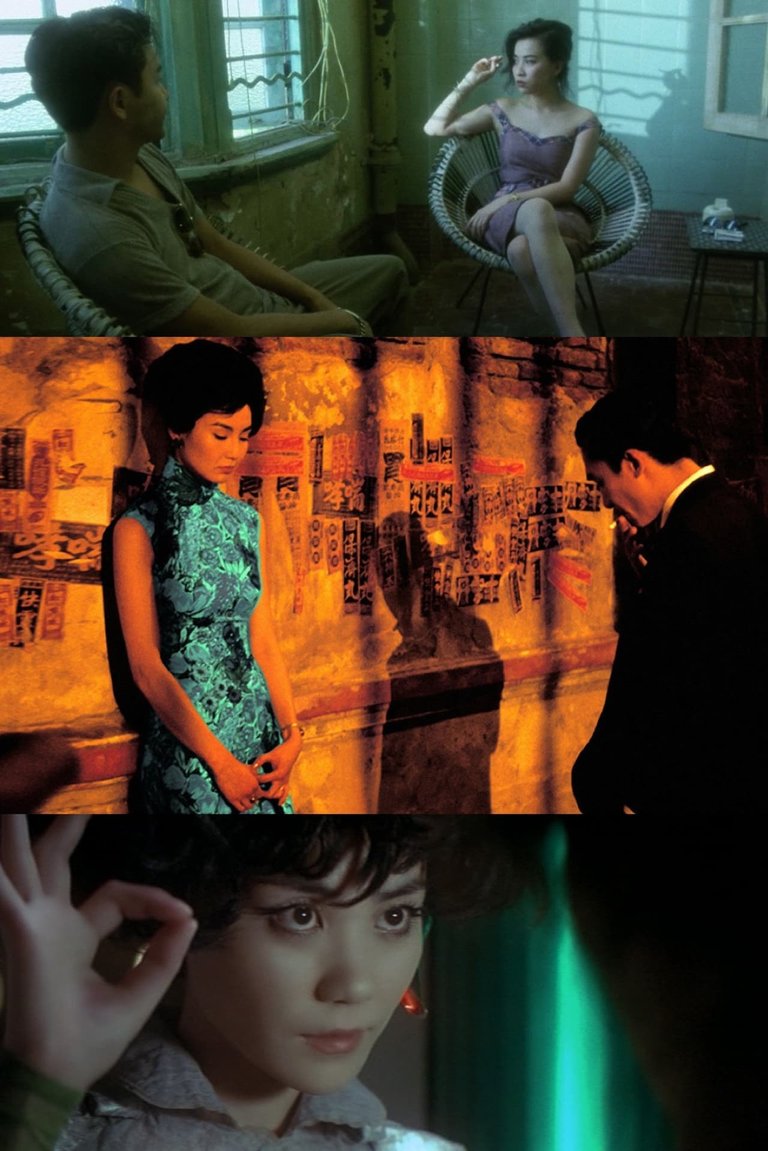
I have never heard of a Korean trilogy film until now. Since this is a trilogy I am sure that it is good, with that being said, I think I am going to check this out.
It's not Korean. Wong Kar-wai is from Hong Kong (and some of his movies are filmed in Shanghai). Thank you for reading my post. Greetings
Oh, I thought it was Korean.
No soy fan de este tipo de películas pero me gusta mucho tu forma de hacer las reviews, son muy completas y tienen un buen análisis.
Post votado por la Curación de la Comunidad de Mundo Virtual. Recibes algunos Huesos
Te invitamos a que conozcas nuestra Comunidad de Hive
Me la han recomendado mucho como una película bastante emotiva pero aún no he dedicado el tiempo para verla.